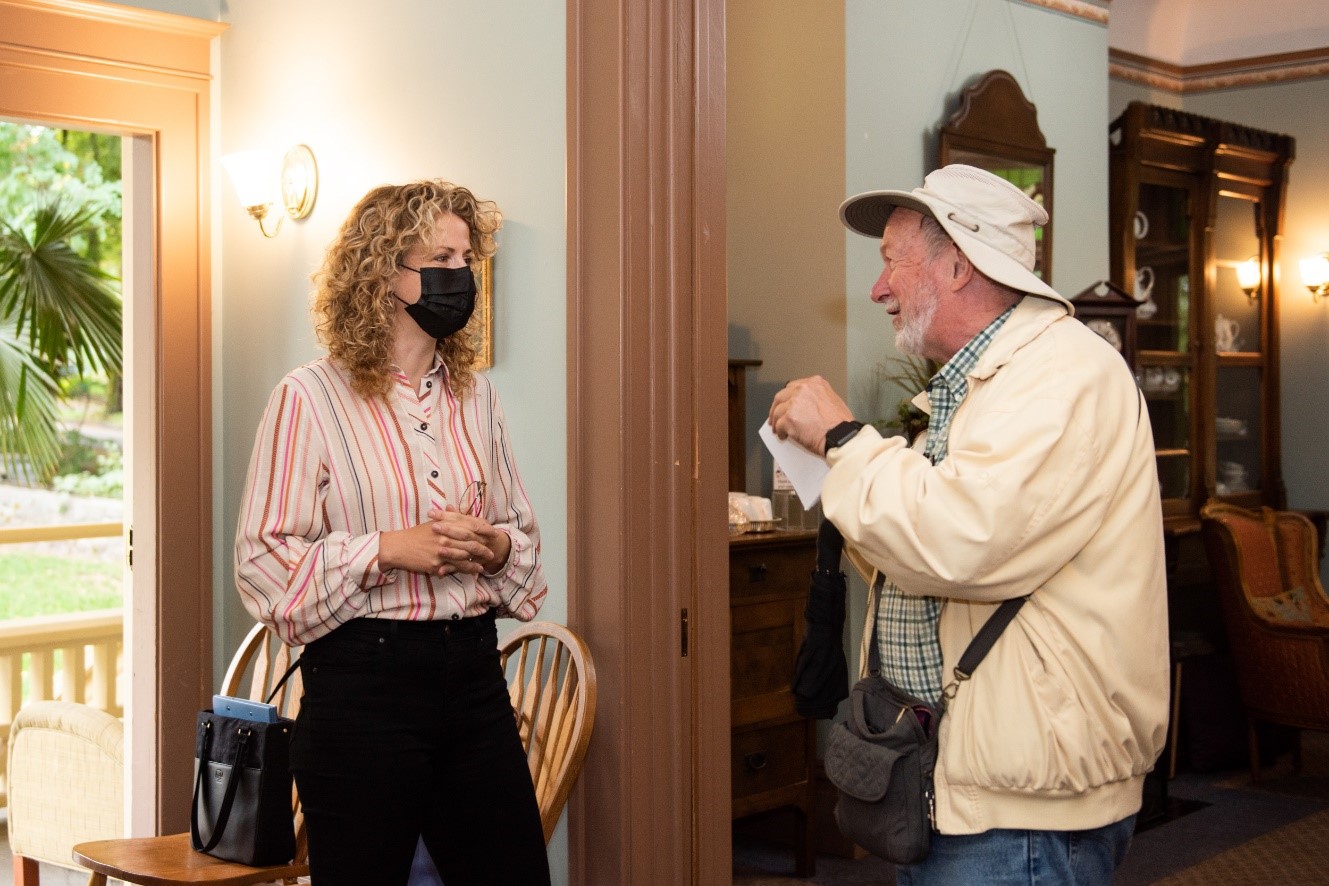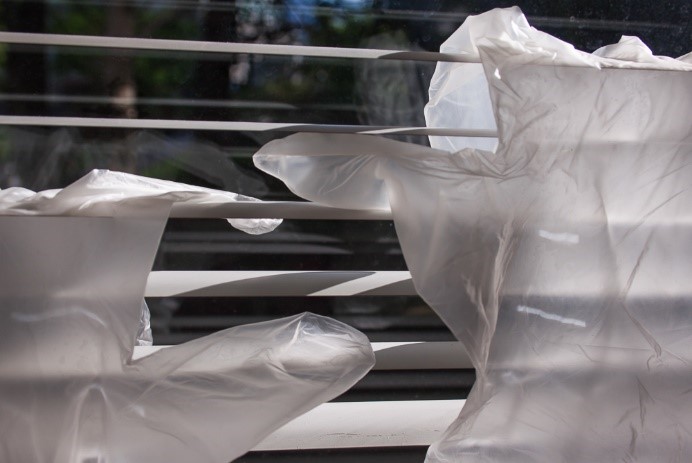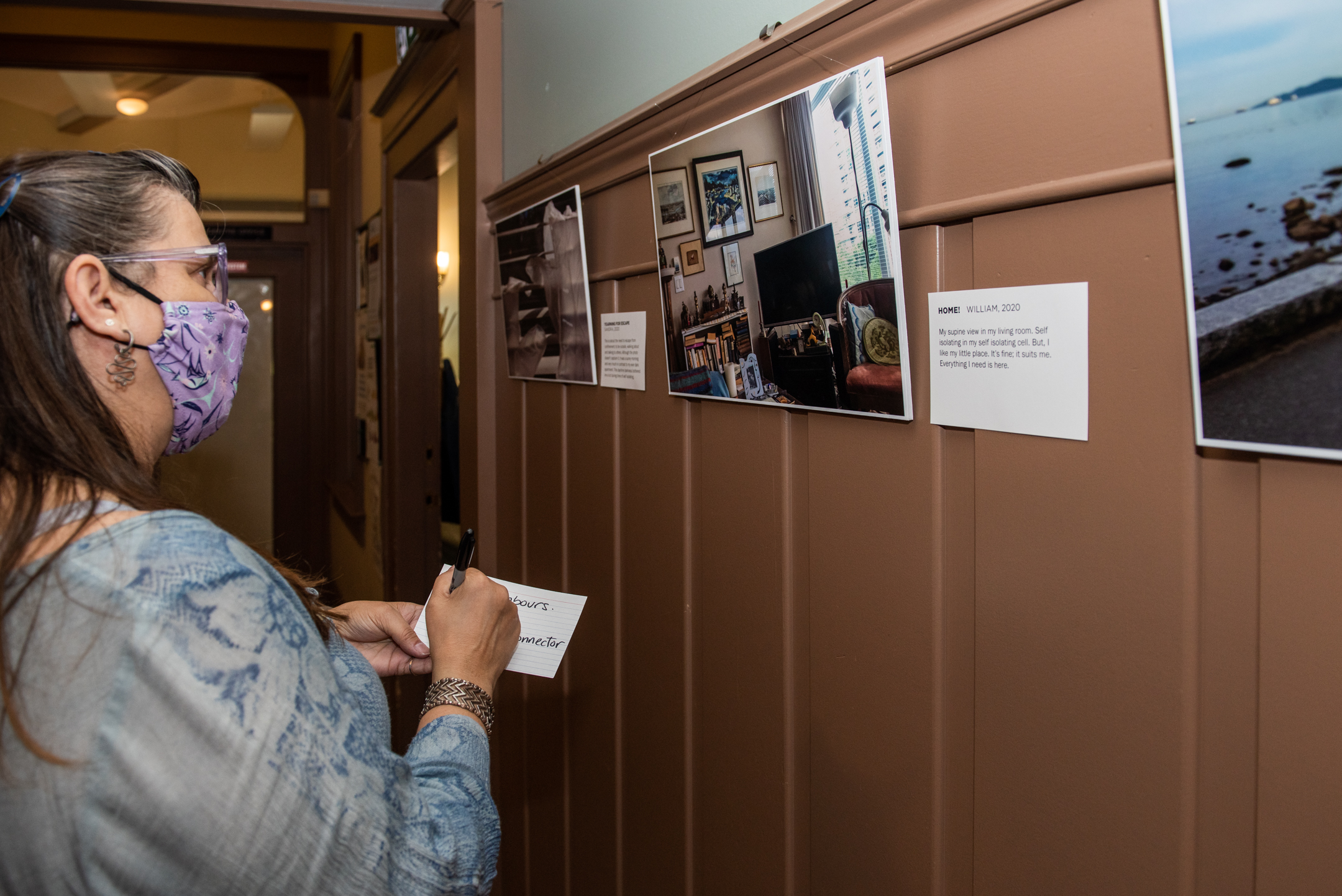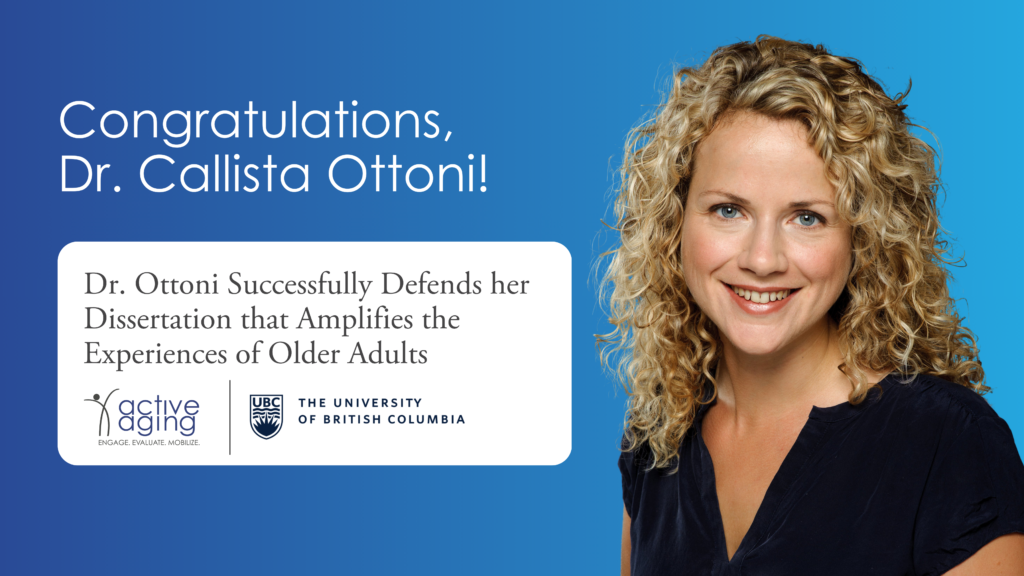On June 5, 2024, Dr. Callista Ottoni successfully defended her doctoral dissertation titled, ‘“We dodge each other smiling”: older adults’ social connectedness and everyday well-being during the COVID-19 pandemic and beyond.’ To obtain her PhD in Interdisciplinary Studies at the University of British Columbia (UBC), Callista designed a community-based study to explore social connectedness and loneliness experiences of people 55+ during the COVID-19 pandemic. We congratulate her on this well-earned achievement!
“Callista’s ground-breaking work contributes to an emerging understanding of how to support older adults in the midst of crises. She has set the foundation for how we can approach research with older people in these contexts.”
– Joanie Sims Gould
She partnered with the West End Senior Network’s (WESN) and recruited 31 people via their email list serv. Participants conducted virtual interviews, surveys, and took self-directed photographs (photovoice). Through the data she collected, Callista illustrated how older adults’ home and neighbourhood environments shaped their social connectedness and well-being during the pandemic. As an implication of her findings, she calls “on city officials, neighbourhood organizations, and multi-unit housing managers to prioritize policies and programs that foster social connectedness among older adults who face multiple barriers to social participation.”(1) Learn more about her findings here.

Callista’s use of photovoice—facilitated virtually— helped participants’ share intimate details about their pandemic lives while in-person contact was restricted. The participants were provided with a list of open-ended prompts to guide their photography of every day experiences. Photovoice allowed participants to direct Callista to what they viewed as important and amplified their voices. Participants’ photographs suggested the importance of comfortable housing, greenspaces, and access to amenities to maintain well-being during the pandemic. However, some photographs also illustrated diminished well-being and increased isolation from extended time at home.

Callista shares that she “was motivated to use research methods that foreground people’s lived-experiences, and identify insights to help inform programs and policies.”

Callista feels “it's an honour to have engaged with and learned from the people who participated in [her] doctoral research.” Her use of photovoice exemplifies her commitment to participant engagement and knowledge mobilization by prioritizing narrative storytelling. It is not only a central method in her data collection, but also in her expression of research findings. Narrative storytelling interprets human experiences through written, oral, or visual mediums to inspire and educate audiences. This is evident in the short films produced by Callista, where she brings emotionally and visually compelling narratives to life, illustrating key research findings. Her work has gained recognition across North America, including the award-winning film 'I’d Rather Stay'
As the Manager of Qualitative Research and Knowledge Translation and Exchange for the Active Aging Research Team, Dr. Callista Ottoni explains that her passion lies in “meaningful engagement, arts-based inquiry, and generating knowledge and action that improves health and social equity.” Over the years, her work has highlighted various social health issues and prompted discussions across government and community settings. Her efforts have earned her UBC’s top doctoral scholarship (The Killam Prize) and a Public Scholars Initiative Award. Additionally, she received a Cordula and Gunter Paetzold Fellowship and a National SSHRC Doctoral Fellowship.
While Callista’s accomplishments are many, we celebrate her latest achievement with pride and heartfelt congratulations. The Active Aging Research Team is eager to see how Callista’s creativity, curiosity, drive, and critical lens will continue to change the way we think about and understand the people and communities around us. Congratulations, Dr. Callista Ottoni on this monumental achievement!


References:
- Ottoni, C. A., Winters, M., & Sims-Gould, J. (2022). “we see each other from a distance”: Neighbourhood social relationships during the COVID-19 pandemic matter for older adults’ social connectedness. Health & Place, 76, 102844. https://doi.org/10.1016/j.healthplace.2022.102844

